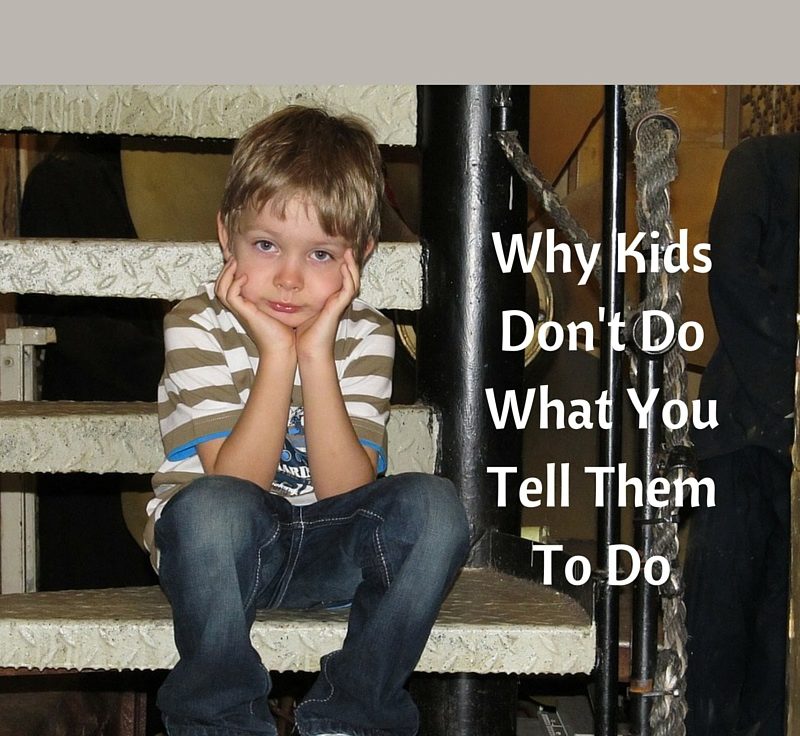 If you assign homework, you have probably had students that don’t complete the homework. It is frustrating. You want them to learn and you want them to get good grades. You feel like they are only hurting themselves by not doing the homework. Chances are, since you are now a teacher, you were a student who did complete your homework. It is often difficult for you to understand why your students don’t do their homework.
If you assign homework, you have probably had students that don’t complete the homework. It is frustrating. You want them to learn and you want them to get good grades. You feel like they are only hurting themselves by not doing the homework. Chances are, since you are now a teacher, you were a student who did complete your homework. It is often difficult for you to understand why your students don’t do their homework.
Though the issue of homework is complicated and often involves a debate of whether or not homework is actually beneficial, the fact remains that most teachers still assign homework and some students will not do their homework.
If we can understand why students don’t do their homework, we have a better chance of both assigning homework that students will do and in doing what we can to create the motivation for them to do it. At the very least, understanding that there are many reasons that students don’t do homework can help teachers to realize that it isn’t personal. Students often don’t do homework for reasons that aren’t even about you, your teaching, or your subject matter.
Here is a list of 10 reasons that students don’t do homework, aligned with suggestions that may help to alleviate the problem.
They don’t know how to do the assignment.
In order to do their work, students need to understand the directions and have the basic skills need in order to complete the task. This usually means that students have been introduced to a topic, have had some instruction and are not trying to learn something new and difficult on their own. The material also needs to be at the students’ instructional or independent level. Be sure your directions are clear and specific and that the level of the work is appropriate for the students.
They don’t understand the purpose for the assignment.
When students understand the importance of something they are learning, they are more likely to feel compelled to do it. We want to know and do things that are going to help us in our lives. When students perceive an assignment as busywork, they often rebel. If a student can do ten math problems correctly, doing one hundred math problems is overkill and perceived as busywork. So is spending hours using a dictionary to define words. Make sure that students know how the homework will help them. Help them to connect the content to real world tasks.
Students are overwhelmed by the enormity of the task.
We’ve all had experiences where we have felt overloaded with too much to do. As adults, we have also figured out ways to break down tasks. Students are still learning to manage large tasks. Help them to break down large assignments into smaller parts. Instead of assigning a large project due in three weeks, help students to break down the project into smaller chunks and then assign smaller chunks for homework in the days leading up to the due date for a big project.
Assignments are based on low level tasks.
Basic recall gets boring quickly. An assignment such as giving students fifty sentences and having them underline the noun once and the verb twice is drudgery and doesn’t engage them. How much more fun would it be to have a contest to see who could correctly incorporate the most verbs in a sentence? Consider homework that require higher thinking levels such as application, analysis, synthesis and evaluation.
Students have too many assignments.
This is a particular danger in middle and high school when students have many different teachers. At this level, teachers often don’t know what other teachers are assigning. You may think that homework will only take them thirty minutes. But if they have seven subjects and every teacher gives them thirty minutes of homework, the student is facing three to four hours of homework. Good teaching teams often discuss homework assignments and try to balance the load so that students don’t have many big assignments due at the same time.
Students don’t have time.
Many students are involved in many extracurricular activities. This is positive and those activities often help students to be engaged with school. When you add practices or games into the mix, it often becomes impossible to do hours of homework on any given night. Older students may have jobs or other responsibilities. Consider giving students assignments ahead of time so they can work on them throughout the week rather than assigning everything to be due the next day.
Students don’t get feedback on their work.
When a student turns in an assignment, they expect feedback. They may get a grade, but they also want comments, especially on written work. Homework should be an opportunity for learning. Students need feedback in order to learn. Teachers can read student work and provide feedback, or use homework in classroom discussions and activities in ways that allow students to get feedback or use their work for a purposeful activity.
Sometimes, the reason that students don’t do work is not related to you or your content. These are more difficult to control, but there are usually positive things you can do to help with the situation.
Students don’t have an appropriate environment to do work at home.
Let’s face it, some students live in chaotic environments. They may not have a quiet place to work or the tools they need in order to do homework. Having a one-on-one conversation with students can help. Talk about what they need in order to do their work and how they might get it. Could they stay at school and extra hour and work in a quiet room? Could they go to the public library? Could they carve a quiet corner of their home?
The student’s family is not supportive of education.
As much as we wish it weren’t true, some students come from families that do not value education. The student is not then likely to get the support or encouragement to do homework. Other families value education, but parents are absent or unable to help their children with homework. Your first instinct might be to “fix” the family. An easier route is to work with the student. Be their encourager. Let them know that you think they can succeed. Let them know how valuable a good education might be to them. We know of a first grader whose parent would not read with him. The teacher made a deal that the student could read to his baby brother, his dog, or even a stuffed animal. If he did that, he could sign his own name on the form that parents usually signed stating that they read together.
The student is rebelling against a parent.
If a parent cares about a student’s grades and a student is trying to rebel, often a quick way to do so is to stop doing homework. This usually gets the parent’s attention quickly. This is particularly true in cases where parents are very demanding and very controlling. Sometimes, the only way an adolescent knows how to rebel is to refuse to do something. This causes grief for both parties. Guiding the parent and student to compromise can be successful. Essentially, help them to negotiate trade. For example, if the student agrees to do homework each night when he chooses to do it, the parent gives up the demand that it be done immediately when the student gets home from school. Both parties can even sign a contract.
If you suspect a student is rebelling, see if you can find out why. That will also help you see possible solutions. Don’t hesitate to get help and support from a guidance counselor, instructional coach or administrator.
These are some of the most common reasons students don’t complete homework. There are undoubtedly many more possible reasons. Though you can’t control all things, you can try to identify why students aren’t doing the homework and then see if there are ways to fix the problem. If we keep our eye on the goal, which is learning, it is less likely that we will fall into the “blame and punish” game that many teachers engage in. Blaming and punishing don’t usually result in more learning!
What are some of the effective strategies you have used to increase homework completion? We would love to hear your ideas in the comments below.
Our best,






